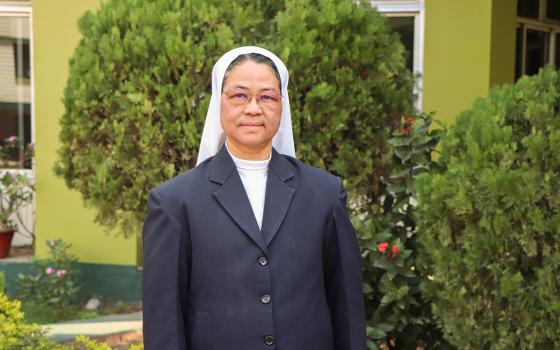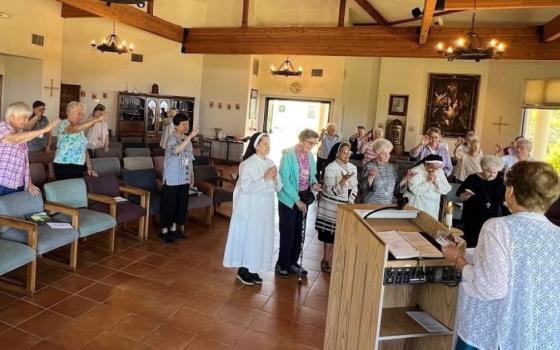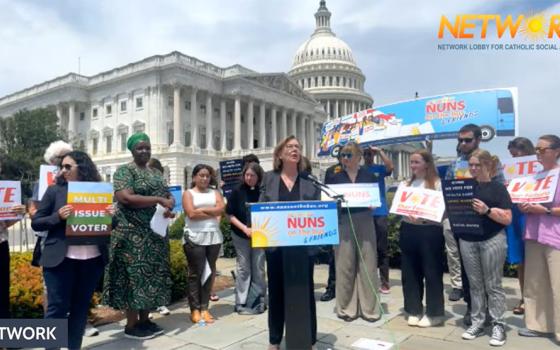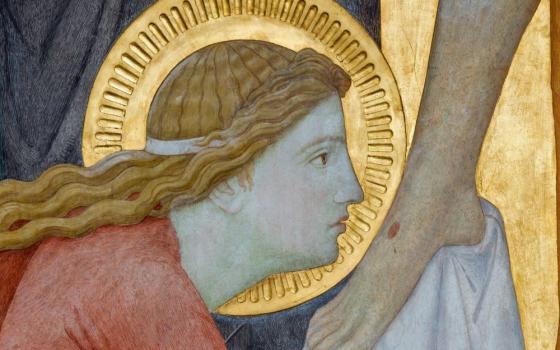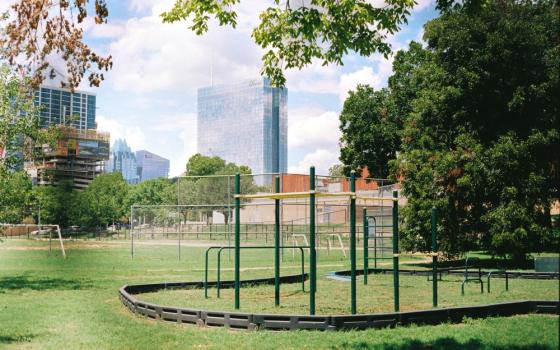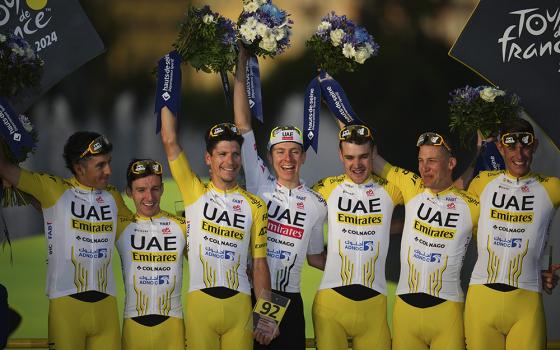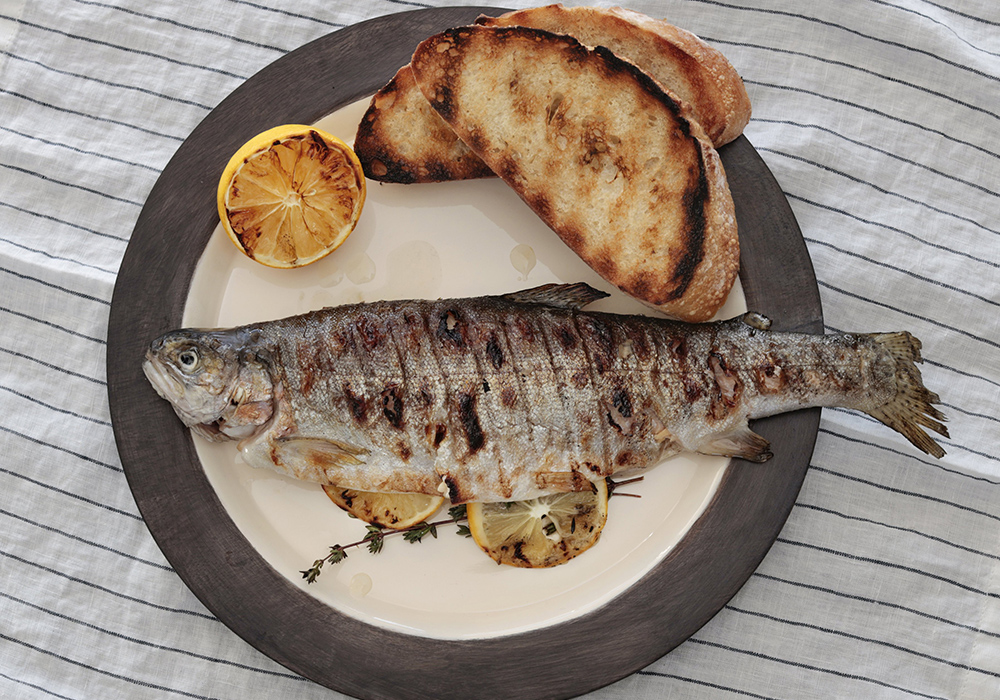
Grilled rainbow trout is accompanied by toasted bread. (CNS/Nancy Wiechec)
When I lived in rural Peru, I often had the privilege of being invited to a family's home for a meal. The poorer the family, the more they put out to welcome a guest. Then, as they were serving what was probably more than the family usually ate in three days, they would say, "Disculpa la pequeñez" ("Excuse the tiny amount we offer"). There was always more than enough for a guest — and a guest was immediately made part of the gathered family.
That came to mind as I read Elisha's servant's protest: "How can I set twenty barley loaves before a hundred people?" If John were doing a screenplay for his bread and fish story, he would have a hologram of Elijah appearing here and there in the background like Dickens' ghost of Christmas past, intimating that the future can be better than any golden memories, depending on what we do with the present.
Why does John have Jesus turn to Philip to ask about caring for the crowd? Philip was hardly a major character in the Gospels. Before this, Philip's only big accomplishment was being called by Jesus and then getting Nathanael to come and see him.
Phillip would have heard Jesus promise Nathanael that they would see great things if they stayed with him — and that's about it (John 1:34-51). What was the poor guy supposed to do? Jesus came to him — not to the purse keeper, not to any wealthy member of the crowd — but to simple Philip to ask where to buy bread for the crowd.
Note, Jesus didn't ask about the budget, but about where to get what the people needed. As if it didn't matter at all, Jesus wasn't asking how they could afford it, but where they could obtain what the people needed. Philip was the one who brought up the budget (perhaps noting that Jesus never thought of the practicalities).
Then Andrew, the go-between of the Twelve, offered a solution as absurd as Jesus' original question: "There's a child here who has five loaves and two fish." Was he joking? Did he think Jesus had been jesting and he just took the play one step further?
Whatever Andrew's intention, Jesus took it seriously. He had the disciples organize the multitude as if for a giant outdoor banquet. Then Jesus took the child's pequeñez, blessed it and started to hand it out to about 5,000 "men" (as in family units?). Do we note a little evangelical embellishment here?
How absurd must it have looked to the crowd! Jesus took what the little one had in her or his snack pack and offered it to a mass of hungry people. How would any of us feel in a situation like this when someone offered us a child's lunch? What would we do?
Advertisement
It was a day of miracles. People had pursued Jesus because they wanted what he had to offer. Then, when the need was acute, he allowed a child to show them the way. What miracle happened that day? Who learned what? Who gave the people what they needed? What kind of hungers were satisfied?
As we think about it, this is typical of how John invites us to wonder about Jesus. John loves to turn the tables with things like being born again, becoming living water, etc. Here he challenges us to see how miracles come about — how the hunger of the world can be assuaged. What are the fragments that were there to be collected and saved? What did Jesus want his disciples to learn?
If this had been a film with holograms of Elijah and his crowd of a hundred, the background music could come from what Paul said to the Ephesians: "Live in a manner worthy of the call you have received."
What happens when we put all of this together and ask about the message for today? Let's take Paul's words as the key to interpretation. What kind of living is worthy of our call? Jesus felt people's hunger and called on an unsuspecting disciple to feel it as well. Then, another disciple not only saw it, but had paid attention to the people who were there. He suggested that a child could have something to give in the situation. Jesus blessed the child's unstinting generosity — and everyone was satisfied.
Who had suspected what could happen that day? The crowd? Jesus? Philip or Andrew? The child? The situation brought them all together to create a new reality, a future better than any past. Some thought there would never be enough; Jesus and the child seemed to think there never need be scarcity.
Perhaps a pequeñez is all we need — and more.

